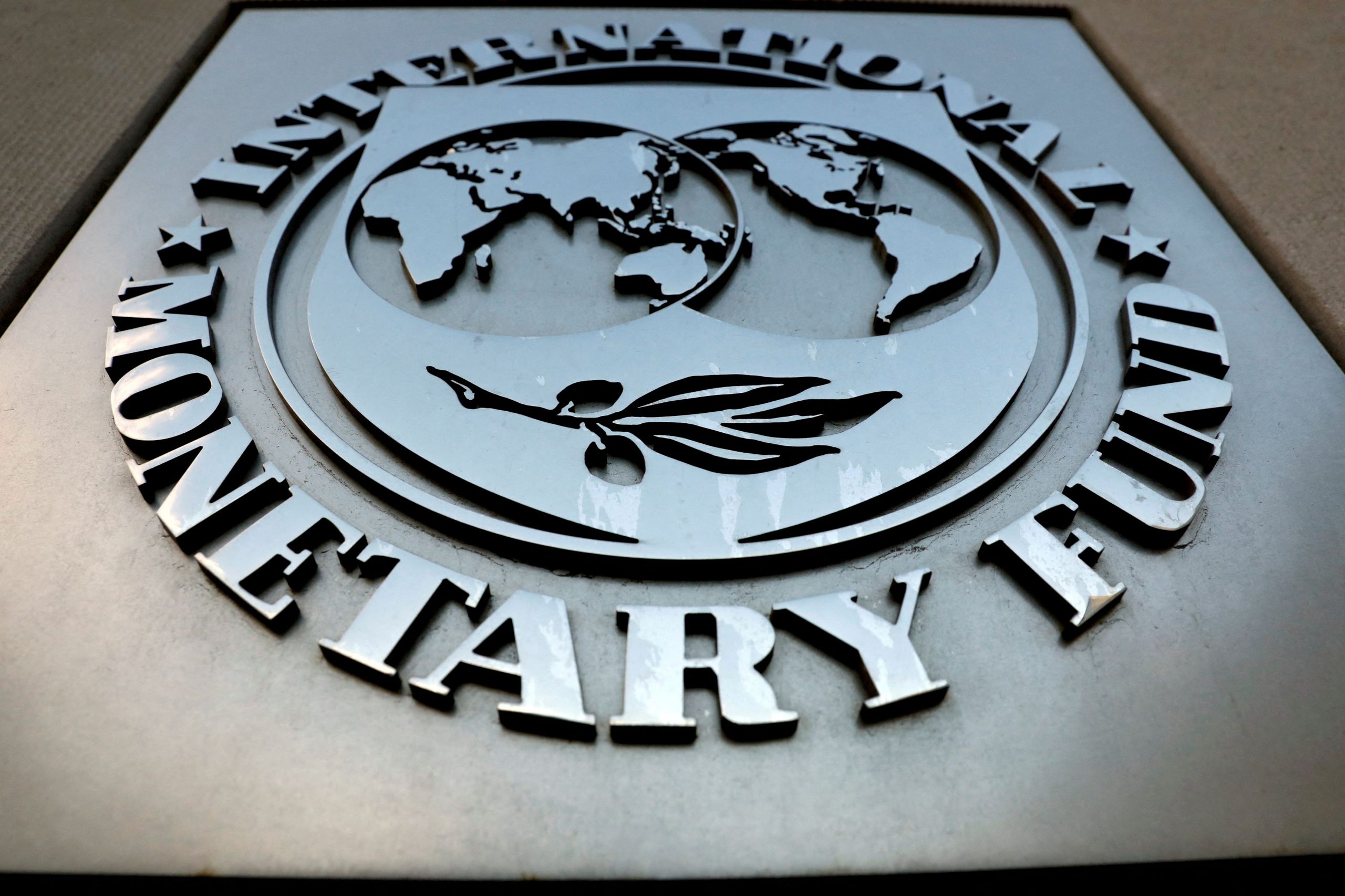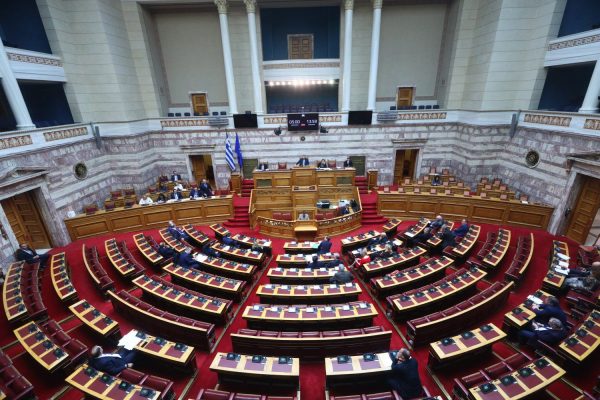
“The right mix of policies” in three main pillars was recommended by the head of the IMF mission for Greece, Gong Shik Kang, speaking online to journalists on the occasion of the completion of the IMF mission in Greece.
The IMF sees government wages and pensions as high, suggests 2% surpluses, sees inflationary risks, as well as possible risks due to interest rates.
Greek economy: Fitch and the Commission’s report will judge support measures
The IMF sees inflationary risks in the event of an escalation of the war in Ukraine and the conflict in the Middle East, as energy and food prices may rise, but in the event of shocks due to extreme weather events
“Greece’s economic prospects have improved significantly. We expect that the economy will continue to grow robustly this year and next year by 2.5% and 2% respectively” said G.S. Kang at the beginning of the online press conference.
However, as stated in the IMF statement, the economy faces macroeconomic challenges amid significant monetary policy tightening, persistent structural inflation and rising property prices, while structural imbalances resulting from low household savings, the still low level of investment and climate changes affect medium-term growth prospects.
Predictions
As pointed out, due to the negative demographic outlook, the expiry of the Next Generation EU (NGEU) in 2026 and low potential growth, growth will moderate to 1.25% in the medium term, while inflation will remain high and is expected to decrease to 2% at the end of 2025 as structural inflationary pressures will gradually ease despite continued normalization in food and energy prices.
The IMF sees inflationary risks in the event of an escalation of the war in Ukraine and the conflict in the Middle East, as energy and food prices may rise, but in the event of a shock due to extreme weather events.
Regarding public finances, G.S. Kang noted that “public debt to GDP has fallen below the pre-pandemic level, and debt financing risks are limited in the medium term due to the favorable debt structure.”
But he recommended “continued fiscal consolidation with the primary surplus rising to 2.1% of GDP in 2024 and maintained at around 2% of GDP in the medium term to strike a good balance between ensuring public debt sustainability and promoting more sustainable, greener and inclusive growth”. He even emphasized that in view of the end of the debt grace period (in 2032) it is important to maintain primary surpluses at 2% of GDP.
The IMF also recommends restraint on spending, especially on public sector wages and pensions, which it says “remain at high levels compared to other countries.”
However, the IMF encourages maintaining or even increasing spending on targeted social transfers, health and education.
Banking System
Regarding the financial system, G.S. Kang said it “remained resilient with improving bank balance sheets.
Asset quality has improved with continued decline in non-performing loan ratios, there is ample liquidity in the banking system and bank capital has been strengthened with increased bank profits.”
But he advised that “as we are in a prolonged higher interest rate environment, any potential risks related to interest rates, liquidity and credit exposures should continue to be closely monitored.
At the same time, we see the need to strengthen macroprudential supervision tools and their active use to ensure financial stability against emerging risks.”
In fact, he specifically referred to recommendations to the Bank of Greece.
“We recommend that the Bank of Greece activate a positive neutral countercyclical buffer and introduce measures based on mortgage borrowers, such as loan-to-value ceilings and debt-service-to-income ceilings to strengthen the resilience of households and to limit the vulnerabilities of the banking system against emerging risks in the future”.
As mentioned in the conclusions of the IMF, the replacement of the targeted longer-term refinancing operations – TLTROs with more expensive financing from the market can create challenges.
He recommended proactive credit risk management to ensure that banks maintain comfortable capital buffers, even suggesting that temporarily increased profits be used to create buffers.
It also recommended continued reforms, emphasizing further streamlining of regulations to facilitate business entry and exit, greater labor force participation by youth, women and the elderly, and strengthening reforms of the judicial system and out-of-court procedures.
Latest News

Everything to Know about Store Hours this Holiday Season
Stores and supermarkets across the country are operating extended hours, offering ample opportunities for holiday shopping

Greece Prepares for State Budget Vote as Debate Reaches Final Stages
Prime Minister Kyriakos Mitsotakis is expected to deliver his remarks late in the evening, shortly before the decisive vote that will conclude the session

DM Dendias: We talk With Turkey But We Always Bring Up Their Unacceptable Positions
Second and last day of closely watched conference, entitled 'Metapolitefsi 1974-2024: 50 Years of Greek Foreign Policy', also included appearances by PM Mitsotakis, Ex-PM Tsipras and PASOK leader Nikos Androulakis, among others

Rhodes Airport Tops Fraport Greece’s Regional Airports in 2024 Performance
According to Fraport's data, more than 35 million passengers (specifically 35.2 million) were handled by Fraport-managed airports during the 11 months.

European Central Bank Cuts Interest Rates by 25 Basis Points
It is the fourth cut of interest rates by Europe’s central bank, a move expected by the markets and financial analysts leading to the rate settling at 3%.

Airbnb: New Measures Add €600 in Extra Costs for Property Owners
Property managers face an immediate administrative fine of 5,000 euros if access to the inspected property is denied or any of the specified requirements are not met.

Economist: Greece Included in the Best Performing Economies in 2024
Meanwhile, Northern European countries disappoint, with sluggish performances from the United Kingdom and Germany.

EasyJet Expands Its Routes from Athens
The airline’s two new routes will be to London Luton and Alicante and they will commence in summer 2025.

Capital Link Forum Highlights Greece’s Economic Resurgence; Honors BoG Gov Stournaras
Capital Link Hellenic Leadership Award recipient, Bank of Greece Gov. Yannis Stournaras, an ex-FinMin, was lauded for his pivotal role during Greece’s economic recovery

Tourist Spending in Greece Up by 14%, Visa Card Analysis Shows
Greece’s capital Athens emerged as the most popular destination, recording a 17% increase in transactions with Visa cards, surpassing even the cosmopolitan island of Mykonos.



![Φυσικό αέριο: Δυναμικό come back του LNG στην Ελλάδα [γραφήματα]](https://www.ot.gr/wp-content/uploads/2023/01/OT_naturalgas-90x90.jpeg)











![Fraport: Πάνω από 35 εκατ. επιβάτες στα αεροδρόμια το 11μηνο – Πτώση στη Μύκονο [πίνακας]](https://www.ot.gr/wp-content/uploads/2022/06/fraport-90x90.jpg)










![Χριστουγεννιάτικο τραπέζι: Ακριβότερο φέτος κατά 10% σε σχέση με το 2023 [πίνακας]](https://www.ot.gr/wp-content/uploads/2022/12/xristoygenniatikotra-600x399.jpg)















 Αριθμός Πιστοποίησης Μ.Η.Τ.232433
Αριθμός Πιστοποίησης Μ.Η.Τ.232433